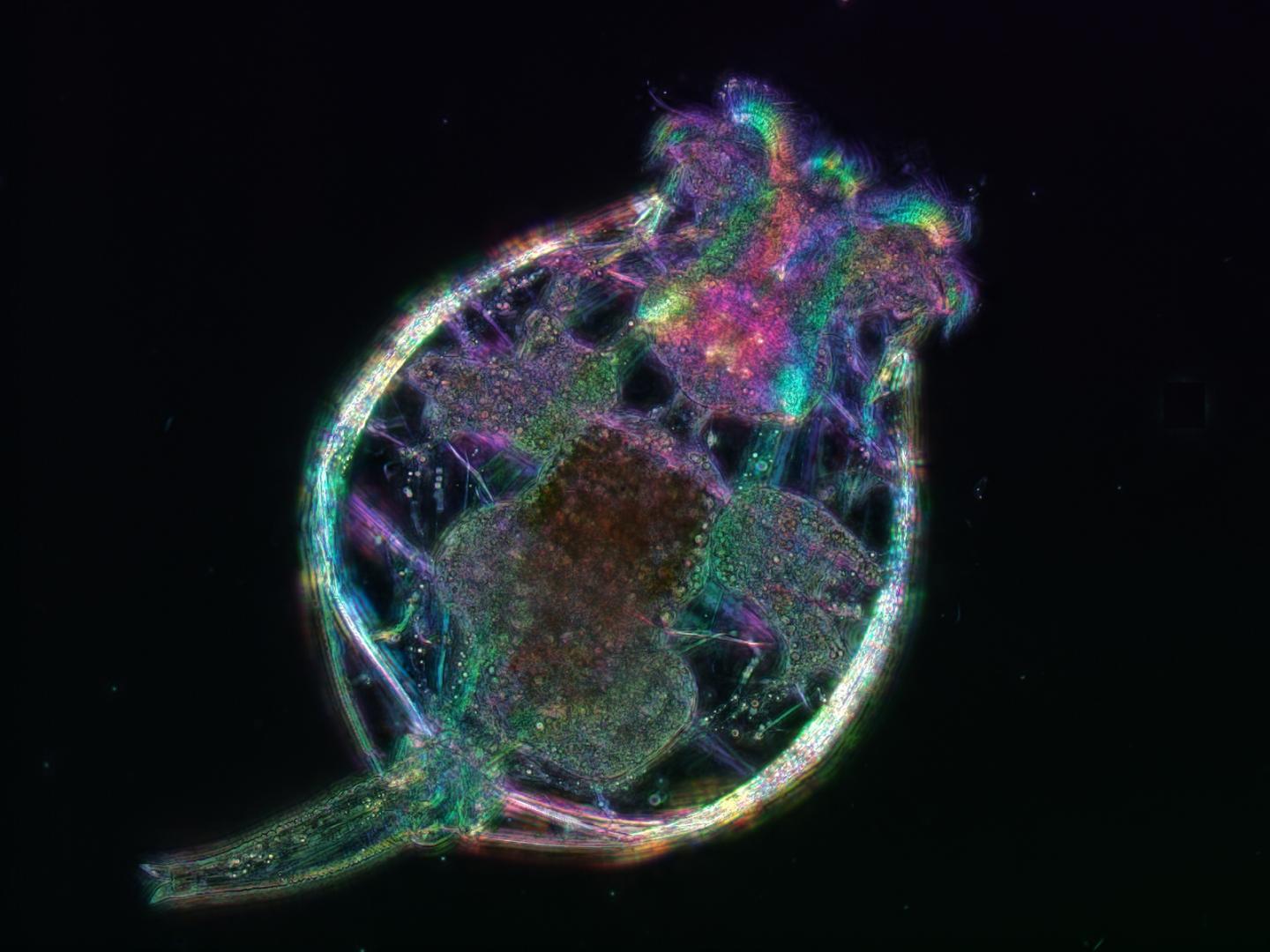
Credit: Michael Shribak and Kristin Gribble
WOODS HOLE, Mass. –Why do we age? Despite more than a century of research (and a vast industry of youth-promising products), what causes our cells and organs to deteriorate with age is still unknown.
One known factor is temperature: Many animal species live longer at lower temperature than they do at higher temperatures. As a result, “there are people out there who believe, strongly, that if you take a cold shower every day it will extend your lifespan,” says Kristin Gribble, a scientist at the Marine Biological Laboratory (MBL).
But a new study from the laboratories of Gribble and MBL Director of Research David Mark Welch indicates that it’s not just a matter of turning down the thermostat. Rather, the extent to which temperature affects lifespan depends on an individual’s genes.
The MBL study, published in Experimental Gerentology, was conducted in the rotifer, a tiny animal that Gribble, Mark Welch, and colleagues have been developing as a modern model system for aging research. They exposed 11 genetically distinct strains of Brachionus rotifers to low temperature, with the hypothesis that if the mechanism of lifespan extension is purely a thermodynamic response, all strains should have a similar lifespan increase.
However, the median lifespan increase ranged from 6 percent to 100 percent across the strains, they found. They also observed differences in mortality rate.
The study clarifies the role of temperature in the free-radical theory of aging, which has dominated the field since the 1950s. This theory proposes that animals age due to the accumulation of cellular damage from reactive oxidative species (ROS), a form of oxygen that is generated by normal metabolic processes.
“Generally, it was thought that if an organism is exposed to lower temperature, it passively lowers their metabolic rate and that slows the release of ROS, which slows down cellular damage. That, in turn, delays aging and extends lifespan,” Gribble says.
Their results, however, indicate that the change in lifespan under low temperature is likely actively controlled by specific genes. “This means we really need to pay more attention to genetic variability in thinking about responses to aging therapies,” Gribble says. “That is going to be really important when we try to move some of these therapies into humans.”
###
The Marine Biological Laboratory (MBL) is dedicated to scientific discovery – exploring fundamental biology, understanding marine biodiversity and the environment, and informing the human condition through research and education. Founded in Woods Hole, Massachusetts in 1888, the MBL is a private, nonprofit institution and an affiliate of the University of Chicago.
Media Contact
Gina Hebert
[email protected]
508-289-7423
Original Source
http://www.
Related Journal Article
http://dx.




